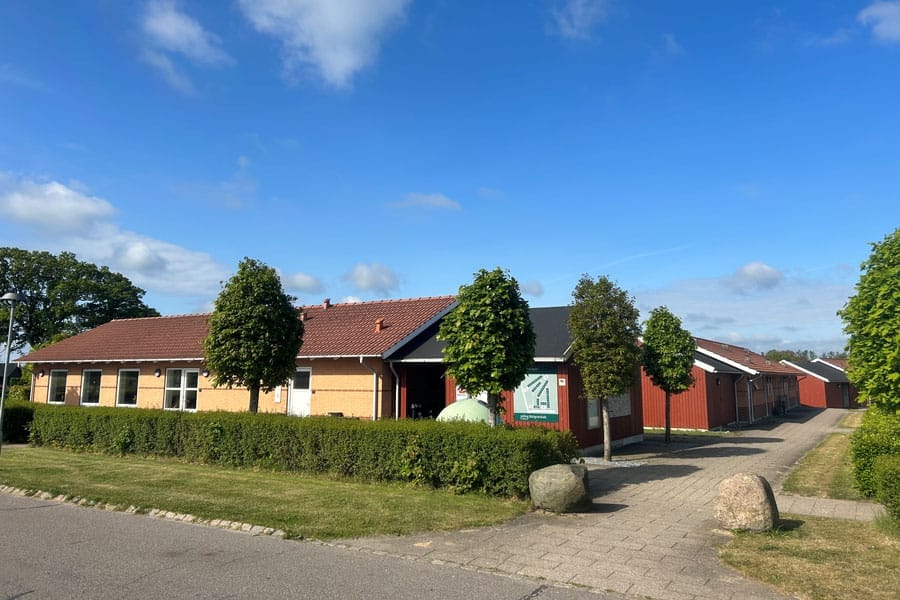Case Story
Innovative Legionella Prevention in UK Fire Stations: Successful Collaboration between Aguardio and EcoProd (UK)
Aguardio Hygiene Sensors provide an innovative solution for monitoring Legionella disease in several UK Fire & Rescue Stations. This system offers remote access to data, eliminating the need for travel, saving time, and reducing overhead costs

Overview
Several Fire & Rescue Stations partnered with Aguardio and EcoProd (Aguardio’s distributor in the UK) to pioneer a cost effective and innovative solution to monitor the bacteria in the fire stations that can cause Legionnaire’s disease, a rare form of pneumonia, and put firefighter’s health at risk. In March 2024, during a business meeting, EcoProd’s team met with representatives from Fire & Rescue Services to understand their water usage and management requirements. The client quickly recognized the superiority of EcoProd’s product portfolio for water management products, which sparked immediate discussions regarding client’s aspiration for enhanced understanding of building operations through remote control and cost-effective solutions. As a starting point, the Aguardio Hygiene Sensor was selected for installation at the trial site. This decision was influenced by its temperature measurement feature, which was deemed particularly useful in monitoring water systems for potential issues, such as Legionella bacteria
Challenge
Ensuring compliance with Legionnaire’s disease prevention regulations in UK fire stations is a legal requirement. This typically involves following a strict procedure, costing the before Fire Service & Rescue Stations approximately £40,000 annually. The procedure includes monthly inspections by an inspector at each station to conduct tests aimed at monitoring legionella bacteria growth in the pipes.
Temperature control is a key aspect of this strategy, aimed at maintaining water at temperatures that discourage Legionella growth. Tests are conducted at water outlets where aerosols, such as those from showers or taps used for drinking water, may form, as legionella bacteria are primarily transmitted through inhalation of air particles. The standards dictate that cold water should ideally be kept below 20°C (after a minute to effectively eliminate bacteria), while hot water should be maintained at a minimum of 45°C after 2 minutes to achieve the same effect.
To tackle the challenge of remote Legionella monitoring and start developing an optimal solution, the initial order of 17 Hygiene Sensors and 2 Bluetooth gateways were ordered via EcoProd, installed and went live. Aguardio’s Sensors were strategically installed on electric showers and hot & cold taps across the fire stations, initiating the data collection process.
How Aguardio Helped
Process & Results
The process of gathering data from Aguardio’s Sensors started as well as analysis of the data on Aguardios online platform Aguardio Hub was initiated to see if the devices were proving the right data in order to efficiently comply with Legionella monitoring as well as provide insights into the usage patterns of the building. Throughout the testing phase, several discussions took place, and thorough tests were conducted to validate the accuracy of Aguardio’s sensor data, crucial for designing an optimal solution.
The process resulted in Aguardio’s sensors, strategically placed on hot or cold taps, demonstrated their capability to provide precise temperature readings (temperature stamps) after 60 seconds of water flow – one stamp for cold water and two stamps for hot water. These temperature reading were integrated into Aguardio’s online platform, Aguardio Hub, enabling fire station manager search for specific fire stations, sensors and their status with either green light indication for water outlets that “passed” the test successfully and red light indication, meaning that a new test needs to be performed.
£40,000
per year saved on maintenance
Precise data
eradicated the possibility of human error in data recording
Improved water safety
Alerts to prompt action for ensuring optimal water safety






